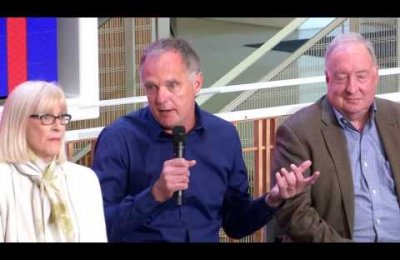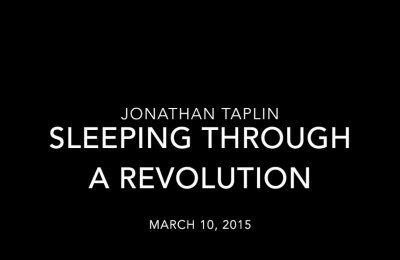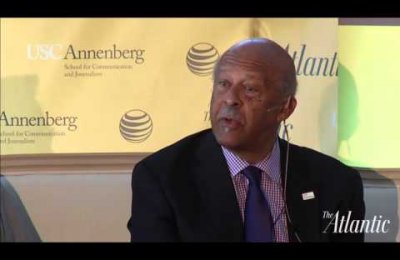The Wall Street Journal featured USC's Annenberg Innovation Lab and its director, communication professor Jonathan Taplin, in an Oct. 30 article about "The Strange Science Of Translating Sarcasm Online."
The article's author, Katherine Rosman, wrote that computer programming follows strict rules. Natural language and the inside-joke culture of the Internet doesn't.
"That is the hurdle faced by USC's Annenberg Innovation Lab, an interdisciplinary center that brings together social and computer scientists," Rosman wrote. "The lab's 'Twitter Sentiment Analysis' project unites linguists, sociologists and computer scientists to try to build a modern-day lexicon for computers to read and interpret huge chunks of data provided by the millions of people who share their opinions online. The scientists at the lab have been using the political season to try to teach a computer to better understand the true sentiment behind tweets."
Taplin, a onetime film producer, Bob Dylan tour manager and investment banker, said: "If we can crack through political sarcasm, everything else will be easier."
Rosman wrote about Taplin and his team of two other professors and eight graduate students who built a natural-language processing program that categorizes tweets about the presidential candidates hot-button political issues. The lab's computer has already analyzed more than 40 million tweets. The team and its crowd-sourced volunteers have manually analyzed more than 50,000 tweets, including deciding whether the tweets are sarcastic.
"The big moments for the Annenberg project have come during nationally televised debates and convention speeches," Rosman wrote. "When something happened on TV that lighted up their Twitter feeds—such as when actor Clint Eastwood pretended to speak to Mr. Obama by addressing an empty chair during the Republican National Convention in August—the programmers quickly worked to re-educate the computer."
Taplin said: "It was likely that tweets using the words or hashtag for 'empty chair' were sarcastic."








